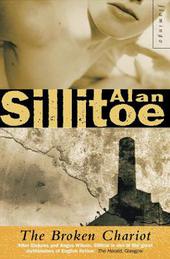
|
The Broken Chariot
Paperback / softback
Main Details
| Title |
The Broken Chariot
|
| Authors and Contributors |
By (author) Alan Sillitoe
|
| Physical Properties |
| Format:Paperback / softback | | Pages:304 | | Dimensions(mm): Height 198,Width 129 |
|
| Category/Genre | Modern and contemporary fiction (post c 1945) |
|---|
| ISBN/Barcode |
9780006493051
|
| Classifications | Dewey:823.914 |
|---|
| Audience | |
|---|
|
Publishing Details |
| Publisher |
HarperCollins Publishers
|
| Imprint |
Flamingo
|
| Publication Date |
4 October 1999 |
| Publication Country |
United Kingdom
|
Description
A superb creation of love, life and class in the post-war world. When Herbert Thurgarton-Strang was seven, his parents -- as loving, as doting as any parents of their generation -- took him away from India and left him in a boarding school in England which had everything to recommend it except pity. Through the stifling, alarming years which follow, Herbert is held together by the notion of revenge on those loving parents, and by the knowledge that, over there, a new world beckons. And when he's seventeen, he steals away from school, steals away from Herbert, becomes a different boy; becomes, in Nottingham, Bert the lathe-worker, Bert the womaniser, Bert the soldier, Bert the sometime bruiser. Plunged into the louche life, he bobs like a cork, but eventually Bert/Herbert does lay his demons to rest.
Author Biography
Alan Sillitoe left school at 14 to work in various factories until becoming an air traffic control assistant with the Ministry Aircraft Production in 1945. He began writing after four years in the RAF, and lived for six years in France and Spain. In 1958, Saturday Night and Sunday Morning was published, and The Loneliness of the Long Distance Runner, which won the Hawthornden Prize for literature, came out the following year. Both these books were made into films.
Reviews'Rewarding novel. Nottingham scenes have considerable vitality, and will also have, for anyone unfamiliar with Sillitoe's early work, considerable freshness.' Scotsman 'The Broken Chariot explores familiar themes for Sillitoe: working in factories, drinking in pubs and chasing women in post-war Nottingham. But the writer has found a fresh, new approach to his specialist subject; one that again allows him to tackle the issue of class in a way that is often surprising and always entertaining.' Yorkshire Post
|